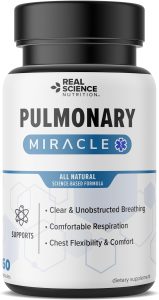
Introduction:
Chronic Obstructive Pulmonary Disease (COPD) presents a formidable challenge to those it affects, significantly impacting their breathing and overall quality of life. While traditional medical treatments are pivotal in managing COPD, the realm of herbal medicine offers a rich source of potential remedies. In this article, we’ll delve into the domain of herbal treatments, shining a spotlight on potent herbs that can offer relief and support to individuals grappling with COPD.
Understanding COPD:
COPD is a multifaceted lung condition characterized by chronic bronchitis and emphysema. It revolves around inflammation and obstruction of the airways, resulting in breathing difficulties. Mainstream treatments include bronchodilators, steroids, and oxygen therapy. Complementary herbal treatments can be considered alongside these methods to enhance overall well-being.
Herbal Allies for COPD:
Eucalyptus (Eucalyptus globulus): Revered for its exceptional respiratory benefits, eucalyptus contains compounds that function as natural decongestants and anti-inflammatories. Eucalyptus essential oil, when utilized in steam inhalations, can help clear airways and alleviate breathing difficulties.
Ginger (Zingiber officinale): This versatile root possesses anti-inflammatory properties capable of reducing inflammation in the airways. Ginger’s potential to relax the airways may help lessen coughing and enhance airflow.
Licorice Root (Glycyrrhiza glabra): Known for its soothing qualities, licorice root acts as an expectorant, aiding in the removal of respiratory tract mucus. This action can ease coughing and promote clearer breathing.
Thyme (Thymus vulgaris): The essential oils within thyme contain compounds with bronchodilatory effects, relaxing the airways and facilitating improved airflow. Thyme teas or steam inhalations can be particularly beneficial.
Mullein (Verbascum thapsus): The leaves and flowers of mullein are acclaimed for their ability to soothe irritated airways and reduce coughing. Infusions or teas made from mullein leaves can offer comfort.
Osha Root (Ligusticum porteri): Traditionally used by Native American cultures, osha root possesses antiviral and anti-inflammatory properties. It can assist in clearing mucus and easing breathing.
Benefits of Herbal Treatments for COPD:
- Reduced Inflammation: Numerous herbs for COPD possess anti-inflammatory properties that can mitigate airway inflammation, promoting easier breathing and reduced discomfort.
- Improved Airflow: Herbs like thyme and osha root help relax and dilate the airways, enabling improved oxygen exchange and better breathing capacity.
- Mucus Clearance: Expectorant herbs like licorice root and mullein support the body in expelling mucus, reducing congestion and the urge to cough.
- Antioxidant Protection: Several herbs, including ginger and eucalyptus, contain antioxidants that combat oxidative stress in the lungs, potentially slowing disease progression.
Incorporating Herbal Treatments:
Before integrating herbal treatments into your COPD management plan, consult a healthcare professional. These herbs can interact with medications or trigger allergies. Consider using herbs as infusions, tinctures, essential oils, or teas. Steam inhalations with essential oils can provide direct relief to the respiratory system.
Conclusion:
The realm of herbal medicine offers a myriad of possibilities for individuals seeking holistic support in managing COPD. The natural benefits of herbs like eucalyptus, ginger, licorice root, thyme, mullein, and osha root can provide relief from symptoms, enhance breathing, and contribute to an improved quality of life. By working in harmony with modern medical approaches, these herbal allies can empower individuals on their journey toward better respiratory health. Remember, your healthcare provider’s guidance is invaluable in crafting a safe and effective herbal regimen tailored to your unique needs.






